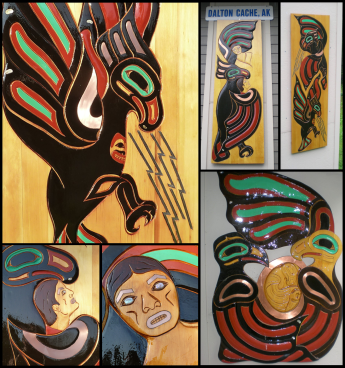
GSA Partnerships with Native American Tribes
Post filed in: GSA Feature
National Native American Heritage Month honors the contributions of Native peoples and cultures to the United States, as well as the historical injustices they have faced, and our shared obligation to advance the prosperity and sovereignty of Tribal Nations year-round.
GSA’s work with Native American tribes covers a wide range of activities. As the home to 272 federally recognized Native American tribes, GSA Region 10 (Alaska, Idaho, Oregon, and Washington) has a unique perspective on GSA’s partnership with Tribal Nations.
GSA contracts with Native American Owned Businesses to support various mission requirements. Over the last five years, the Public Buildings Service’s Region 10 executed over 300 contracts with American Indian Owned Businesses, Tribally Owned, and Native American Owned Businesses. In addition, since 2017, through the use of GSA’s Federal Acquisition Service contract vehicles and other available contract options, federal agencies have spent over $330 million with more than 250 Native American vendors.
GSA’s Native American Tribes web site provides an overview on how recognized tribes may successfully participate with GSA programs.
All federally-recognized Native American tribes can use GSA schedules to help stretch the dollars they have and can reach out to GSA regional Customer Service Directors (CSD) for help on how to leverage GSA solutions for their needs.
One of the key GSA programs is the Personal Property Management (PPM) program where federally-recognized Native American tribes can request unneeded federal personal property through GSAXcess. Within the Region 10 footprint, in Fiscal Year 2021, PPM transferred more than 2,000 pieces of excess personal property to federally-recognized Native American tribes. These pieces included vehicles, snow plows, heavy equipment, generators, compressors, and tools.
For the Yakama Indian Nation in central Washington, the federal excess program has provided items from nuts and bolts to buildings and heavy equipment to help their forestry, facility maintenance, and economic development programs. According to David Garcia, Federal Excess Property Specialist for the Yakama Indian Nation in central Washington, “Our fisheries program has benefited immensely from goods received, [helping us in] restoring salmon and sturgeon populations.”
GSA also works with State Agencies for Surplus Property (SASP) to donate surplus federal property to state-recognized tribes, native villages and corporations.
GSA continues to look for opportunities to help improve services for Native American Tribes. As part of that focus, GSA created a Native Nations Acquisition Support Initiative to specifically address acquisition challenges within the Native American Nations.
Another way GSA is improving services for Native American Tribes is by providing trainings to tribal governments and federal agencies on the services available to tribes. GSA will conduct one of these training sessions on November 17. This session will include a detailed discussion of nuances and tribal specific concerns, such as the impact of varied funding sources. To register, please visit the GSA and Tribal Nations Training Event page.
GSA’s Fine Arts Collection also includes stunning examples of Native American art. For example, the Haines Alaska Dalton Cache Border Station houses three pieces from Tlingit artist Carmen Quinto Plunkett, and the Anchorage Federal Building features Cignik Rose, by Alvin Eli Amason. Follow GSA’s Instagram account to see other art pieces commissioned by GSA’s Art in Architecture program.

The United States has a unique legal and political relationship with the Native American Tribes as provided in the Constitution of the United States, treaties, and federal statutes. Since taking office in January 2021, the Biden-Harris Administration has taken historic steps to support Tribal communities and help Tribal Nations overcome new and long-standing challenges. Moving forward, GSA is committed to doing its part to build on this progress and support the sovereignty, prosperity, and well-being of Tribal communities across the country.

 U.S. General Services Administration
U.S. General Services Administration
